Top Machine Learning Algorithms for SEO & Marketing
Written By
Published On
Read Time

Google has been incorporating machine learning into its products and services for some time. This technology allows them to accomplish tasks that would be extremely challenging or impossible without it.
As SEO professionals, we might view these advancements with a bit of apprehension. If machine learning is integrated into search algorithms, these algorithms become increasingly complex and harder to decipher, complicating our work.
However, why not leverage machine learning for SEO to keep pace with Google? If SEO becomes more challenging due to machine learning, it makes sense to use machine learning to address these challenges, doesn't it?
In this article, we'll demonstrate through a practical example how you can apply machine learning to enhance your search engine optimization efforts.
What is Machine Learning?
Machine learning, a subset of artificial intelligence, is a method by which computers can learn from data without being explicitly programmed to perform a specific task. This learning process involves the development of algorithms that can identify patterns and make predictions based on large sets of data. As the computer gathers more data, it continues to refine its algorithms, resulting in a continuous improvement of its performance.
There are several types of machine learning algorithms that can be applied to SEO. Some of these include:
- Supervised learning algorithms, where the computer is provided with a labeled dataset to learn from.
- Unsupervised learning algorithms, which involve the computer finding patterns and relationships in unlabeled datasets.
- Reinforcement learning algorithms, where the computer learns to perform tasks by interacting with its environment and receiving feedback in the form of rewards or penalties.
Machine learning has a significant role in modern search engine algorithms. Search engines such as Google use machine learning to better understand user intent, analyze content quality, and deliver more relevant search results. By incorporating machine learning into their algorithms, search engines can constantly adapt and evolve, ensuring that they provide users with the most accurate and useful information possible.
Essential Machine Learning Algorithms
In the evolving landscape of SEO, machine learning for SEO has become a cornerstone for achieving top search engine rankings and understanding user behavior. By leveraging advanced algorithms, marketers can refine their SEO strategies, ensuring content not only meets the user's intent but is also favored by search engine algorithms. Among the plethora of machine learning algorithms, Support Vector Machines (SVM) and Information Retrieval stand out for their direct impact on SEO content analysis and optimization.
Support Vector Machines (SVM)
Support Vector Machines (SVM) are a critical component of SEO machine learning, offering a sophisticated approach to classifying and segmenting data. This algorithm operates by mapping data points in a high-dimensional space so that the data points of different categories are divided by a clear gap that is as wide as possible. In the context of SEO, SVM can be utilized to classify website visitors or content types, enabling marketers to segment their audience more effectively and tailor their content strategies accordingly.
For instance, SVM can analyze customer data based on features such as browsing behavior, search queries, and interaction with content. By classifying this data, SVM helps in identifying patterns that can predict user intent and preferences. This insight allows for the optimization of content to match specific segments, enhancing user engagement and improving the website's search engine ranking.

Information Retrieval
Information Retrieval is another fundamental algorithm in the arsenal of SEO machine learning. It focuses on extracting relevant information from large datasets based on user queries. This algorithm is at the heart of search engines, determining how content is indexed and retrieved in response to search queries. For SEO, mastering Information Retrieval means understanding how to make content more discoverable and relevant to both users and search engines.
This algorithm assesses the relevance of content by analyzing keyword frequency, the document's structure, and the presence of related terms. It helps in identifying which keywords or phrases are most effective in drawing traffic and how they should be incorporated into content for optimal search engine visibility. By leveraging Information Retrieval, marketers can perform SEO content analysis using machine learning, ensuring their content strategy aligns with how search engines interpret and rank content.

K-Nearest Neighbors Algorithm
The K-Nearest Neighbors (K-NN) algorithm is a fundamental component of machine learning for SEO, offering a straightforward yet effective approach to classifying data based on similarity. This algorithm plays a crucial role in enhancing the personalization and relevance of content, which are key factors in improving SEO performance and user engagement.
K-NN operates by analyzing a dataset to identify the 'nearest neighbors'—data points most similar to the one being considered. In the context of SEO, this could mean identifying content pieces that are most similar to a user's previous interactions or search queries. By leveraging this algorithm, SEO professionals can optimize content recommendations, ensuring that users are presented with articles, products, or services that closely match their interests and search intent.
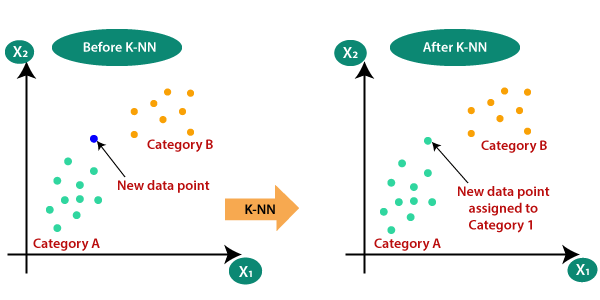
Learning to Rank (LTR)
Learning to Rank (LTR) is a sophisticated machine learning algorithm that has significant implications for SEO. LTR focuses on creating models that predict the optimal order of content pieces for a given query, aiming to match the search engine's goal of providing the most relevant results first. This algorithm is essential for SEO professionals seeking to understand and influence how their content is ranked by search engines.
LTR algorithms use training data derived from search engine results and user interactions to learn how different factors influence the ranking of web pages. These factors can include keyword relevance, content quality, user engagement metrics, and more. By analyzing this data, LTR models can predict how changes to these factors might impact the ranking of a page for specific queries.
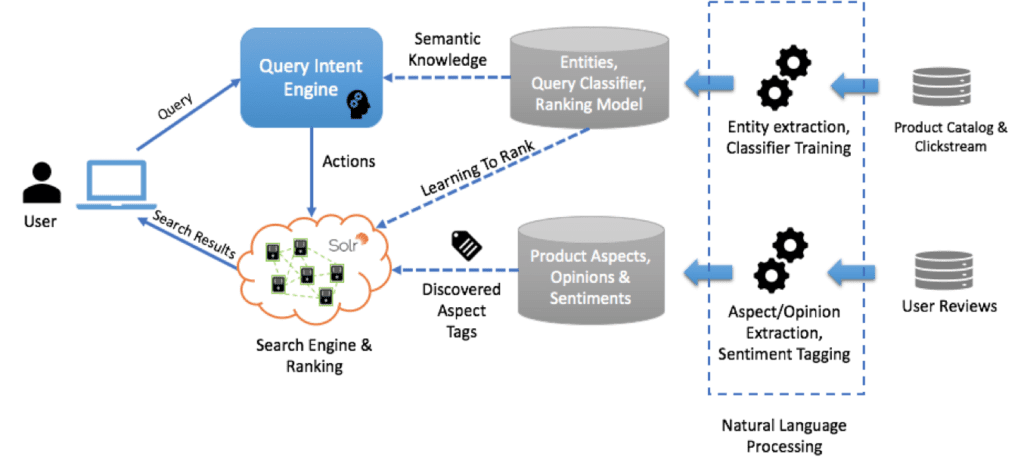
Decision Trees
Decision Trees are a pivotal machine learning algorithm that has found significant application in SEO machine learning strategies. This algorithm helps in breaking down complex decision-making processes into simpler, more manageable parts, making it easier to visualize and understand how different factors contribute to the final outcome. In the context of SEO, Decision Trees can be utilized for a variety of purposes, including content optimization, user behavior analysis, and improving website navigation.
The essence of using Decision Trees in SEO lies in their ability to model the decisions a user might make when navigating a website or searching for information online. For instance, a Decision Tree can help determine the most likely path a user will take when looking for a specific type of content, based on factors such as search queries, previous website interactions, and demographic information. This insight allows SEO professionals to optimize their content and website structure to better align with user preferences and search engine algorithms.
K-Means Clustering Algorithms
K-Means Clustering Algorithms represent another critical machine learning technique that has transformative potential for SEO machine learning. This unsupervised learning algorithm groups similar data points together into clusters, making it easier to identify patterns and relationships within the data. For SEO, K-Means Clustering can be particularly useful in segmenting users, understanding content performance, and tailoring SEO strategies to specific audience segments.
One of the primary benefits of using K-Means Clustering in SEO is its ability to segment website visitors based on their behavior and preferences. By clustering users into distinct groups, marketers can develop more targeted content and SEO strategies that cater to the specific needs and interests of each segment. This personalized approach not only improves user engagement but also increases the likelihood of conversions, as content is more closely aligned with what users are searching for.
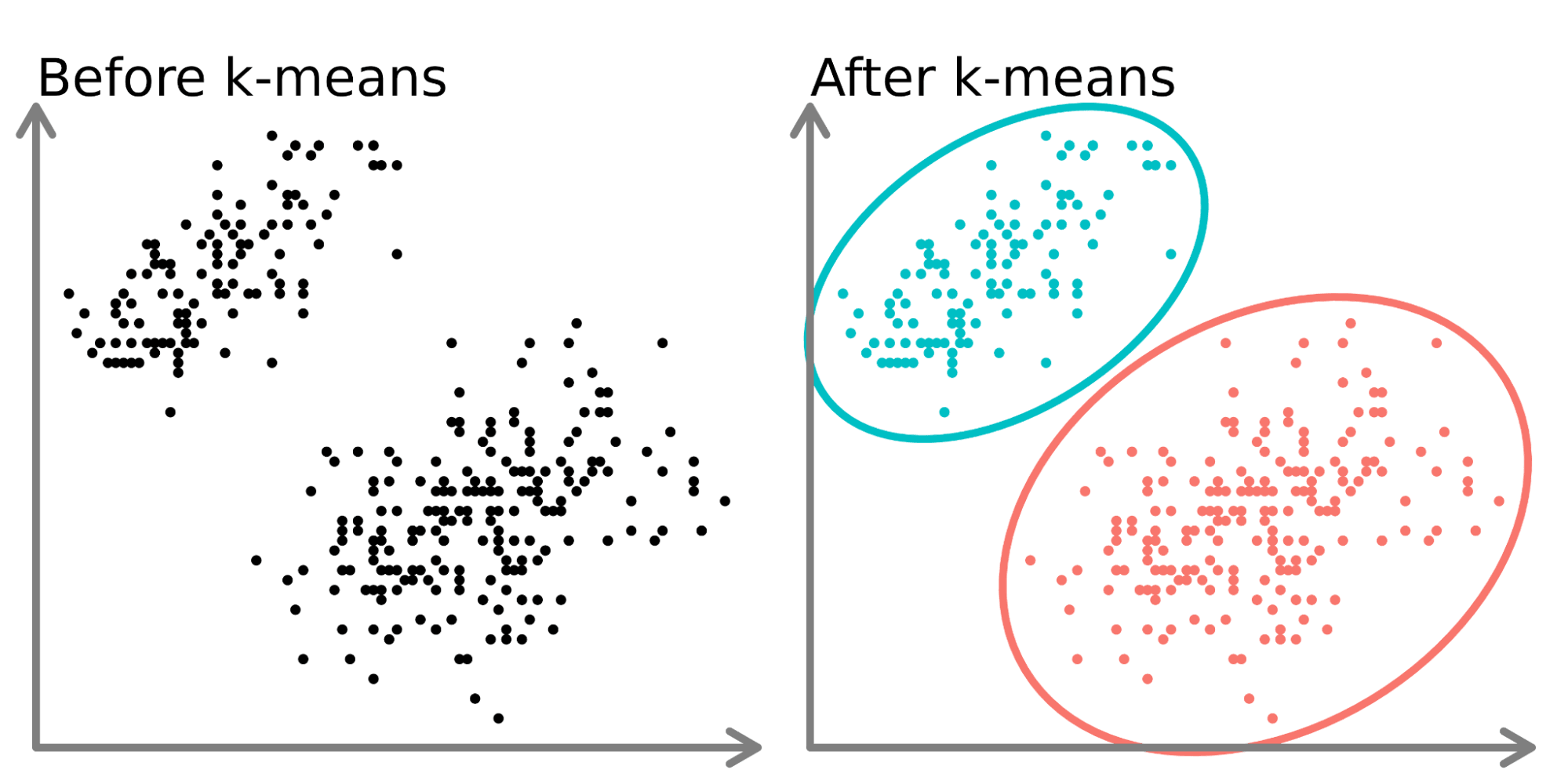
Convolutional Neural Networks
Convolutional Neural Networks (CNNs) are a class of deep neural networks that are particularly effective in processing data with a grid-like topology, such as images. In the realm of SEO machine learning, CNNs have started to play a crucial role, especially in enhancing visual content optimization and improving image search relevance. Their ability to analyze and interpret images allows for a more sophisticated approach to SEO, where visual content becomes as significant as textual content in search rankings.
The application of CNNs in SEO revolves around optimizing images to make them more discoverable and relevant to search engine queries. By analyzing images, CNNs can identify objects, themes, and patterns within visual content, providing insights that can be used to tag and categorize images more accurately. This process not only improves the visibility of images in search results but also enhances the overall user experience by ensuring that images are relevant to the search queries.

Naïve Bayes
The Naïve Bayes algorithm is a simple yet powerful probabilistic machine learning model that is used for classification tasks. In the context of SEO machine learning, Naïve Bayes can be particularly effective in understanding and predicting user intent, as well as categorizing content based on its relevance to specific queries. This algorithm works under the assumption that the presence of a particular feature in a class is independent of the presence of any other feature, making it well-suited for analyzing text data.
One of the key applications of Naïve Bayes in SEO is in keyword research and content categorization. By analyzing the words and phrases used in search queries and content, Naïve Bayes can help identify patterns and trends that indicate what users are looking for. This insight allows SEO professionals to optimize their content with the right keywords and topics, ensuring that it meets user intent and ranks well in search results.
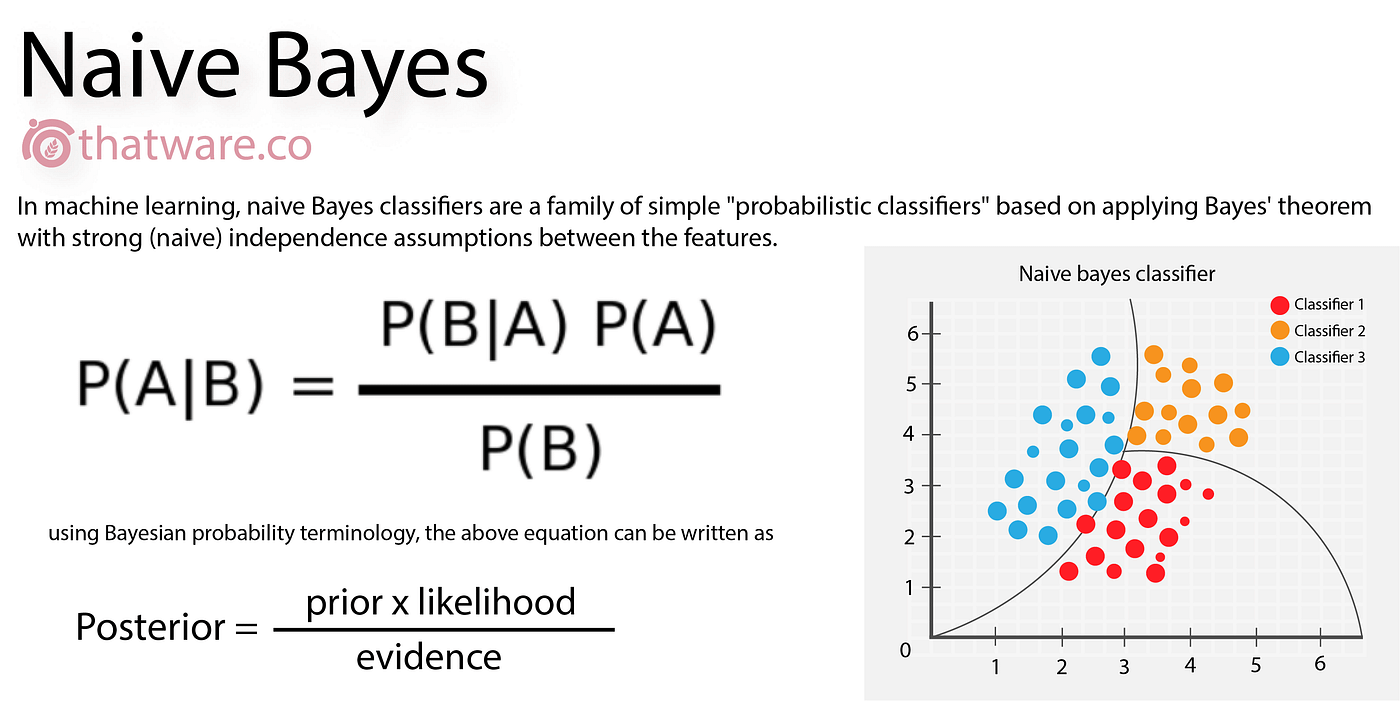
Principal Component Analysis
Principal Component Analysis (PCA) is a sophisticated machine learning technique used to reduce the dimensionality of large data sets, simplifying them while preserving their most critical information. In the context of SEO machine learning, PCA plays a pivotal role in deciphering the vast and complex data associated with website traffic, user behavior, and search engine rankings. By identifying patterns and correlations within these data sets, PCA helps SEO professionals focus on the variables that have the most significant impact on their SEO performance.
The application of PCA in SEO allows for a more efficient analysis of factors affecting website visibility and ranking. For instance, by applying PCA, one can distill numerous metrics—such as page load time, bounce rate, and time on site—down to a smaller number of components that capture the essence of website performance. This streamlined approach enables SEO experts to prioritize their optimization efforts on aspects that truly matter, ensuring that resources are allocated effectively to improve search rankings.
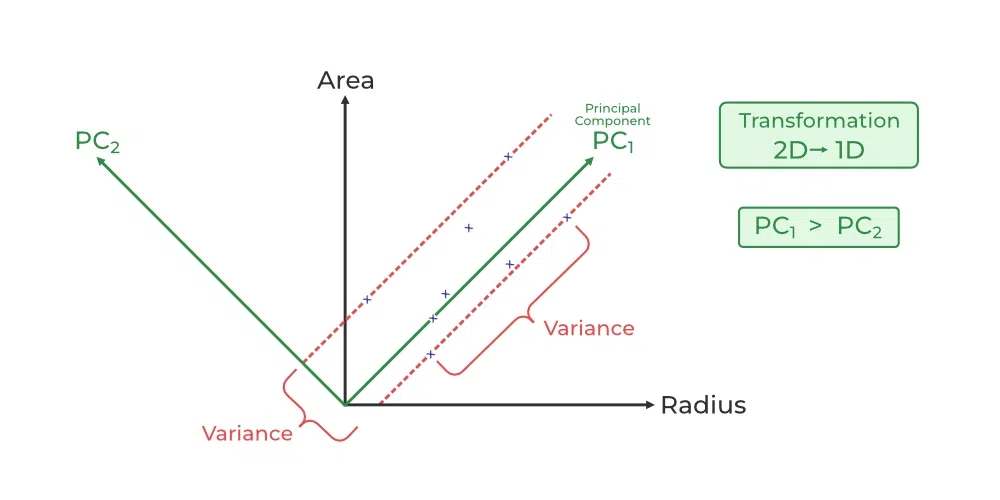
Surfer NLP: Optimize Content for SEO with Deep Learning
Surfer NLP (Natural Language Processing) represents a groundbreaking application of deep learning in the realm of SEO. This advanced tool leverages the power of NLP to analyze and optimize web content, ensuring that it aligns with search engine algorithms and user intent. By understanding the structure, context, and semantics of content, Surfer NLP enables SEO professionals to craft content that is not only informative and engaging but also highly optimized for search engines.
One of the key strengths of Surfer NLP is its ability to analyze the top-ranking pages for a given query and identify the factors contributing to their success. This includes the use of relevant keywords, the density of those keywords, and the overall topical relevance of the content. Armed with this information, content creators can optimize their own pages to match or exceed the quality of top-ranking competitors, significantly improving their chances of achieving high rankings in SERPs.

Challenges and Ethical Considerations of Using Machine Learning in SEO
As machine learning continues to revolutionize the field of SEO, it is crucial to address the challenges and ethical considerations that come with its adoption. Three key aspects to consider are data privacy and security, avoiding biases in machine learning algorithms, and maintaining transparency and control over AI-driven content marketing.
Ensuring Data Privacy and Security
One of the primary concerns when implementing machine learning in SEO is the protection of user data. With the increasing regulations surrounding data privacy, such as the General Data Protection Regulation (GDPR), businesses must ensure that their AI-powered marketing platforms comply with these regulations and safeguard user data from potential breaches. Implementing robust data encryption techniques and constantly monitoring data access are essential in maintaining data privacy and security.
Avoiding Biases in Machine Learning Algorithms
Machine learning algorithms are trained on large datasets, which can sometimes contain biases that may unintentionally seep into the model's output. These biases can lead to skewed results, impacting the effectiveness of SEO strategies and potentially causing harm to specific groups of users. To avoid such biases, it is vital to use diverse and representative data sources while training the algorithms and continuously monitor and refine the models to ensure fairness and accuracy in the generated results.
Maintaining Transparency and Control over AI-driven Content Marketing
While AI-powered content marketing platforms like Speedybrand.io offer numerous benefits, it is essential to maintain a balance between automation and human involvement. Businesses should ensure that their marketing campaigns remain transparent and ethical, with human experts overseeing the AI-generated content and strategies. This balance allows for better control over the marketing campaigns while still reaping the benefits of machine learning for SEO.
Machine Learning for SEO: The Future
As technology continues to advance, machine learning is poised to play an even greater role in shaping SEO strategies. The future of SEO will likely involve more sophisticated AI-powered content marketing tools and the ongoing collaboration between human expertise and machine learning.
How Machine Learning Will Continue to Shape SEO Strategies
Machine learning algorithms are becoming more advanced, enabling them to better understand user intent and preferences. This will lead to more personalized and relevant content recommendations, as well as more accurate predictions of search trends and audience behavior. As a result, businesses will be able to create more targeted and effective SEO strategies, further improving their online visibility and competitive edge.
Potential Advancements in AI-Powered Content Marketing Tools
As AI technology evolves, we can expect to see even more powerful content marketing tools that harness the power of machine learning. These advancements may include better natural language processing capabilities for improved content quality, more accurate sentiment analysis to gauge user emotions, and advanced predictive analytics to forecast content performance. By leveraging these cutting-edge tools, businesses will be able to create highly engaging and optimized content that resonates with their target audience and drives desired outcomes.
The Ongoing Role of Human Expertise in SEO and Content Marketing
Despite the growing influence of machine learning in SEO, human expertise will remain crucial in the world of content marketing. While AI-powered tools can provide valuable insights and recommendations, human intuition and creativity are essential in crafting compelling content that connects with audiences on an emotional level. Moreover, human expertise is necessary for overseeing the ethical use of AI technology and ensuring that machine learning algorithms remain transparent and unbiased. By combining the strengths of both machine learning and human expertise, businesses can achieve a perfect balance of data-driven insights and creative storytelling that drives long-term SEO success.
Innovative Applications of Machine Learning in SEO
The integration of machine learning into SEO strategies has revolutionized the way marketers optimize websites and content for search engines. Machine learning for SEO leverages algorithms and models to analyze vast amounts of data, predict outcomes, and automate decision-making processes. This innovative approach enables SEO professionals to uncover deep insights into user behavior, search engine algorithms, and content performance, leading to more effective and efficient optimization strategies.
How Search Engine Optimization is Changing Because of AI
Artificial Intelligence (AI) is reshaping the SEO industry by introducing more sophisticated and efficient ways to optimize for search engines. AI's ability to process and analyze data at scale has led to more personalized and user-centric SEO strategies. Search engines themselves are using AI to better understand user intent and deliver more relevant search results, forcing marketers to adapt their SEO tactics to align with these more advanced algorithms.
AI-driven content optimization tools are now capable of analyzing the semantic quality of content, ensuring that it not only contains the right keywords but also covers topics in a comprehensive and user-friendly manner. This shift towards topic relevance and user experience requires SEO professionals to focus on creating content that genuinely addresses the needs and questions of their audience.
Surfer NLP: Deep Learning for Content Optimization
Surfer NLP (Natural Language Processing) stands at the forefront of integrating deep learning into content optimization for SEO. This advanced tool leverages the capabilities of NLP to analyze the structure, context, and quality of web content, comparing it against top-ranking pages to identify what makes them successful. By understanding these key factors, Surfer NLP provides precise recommendations for optimizing content to match the quality and relevance of leading competitors.
Surfer NLP's deep learning algorithms go beyond simple keyword optimization, focusing on the overall topic relevance and user intent. This ensures that content is not only optimized for search engines but also provides real value to users, enhancing engagement and satisfaction. The tool's ability to suggest semantically related keywords and phrases helps create more comprehensive and authoritative content, further improving its search engine performance.

Optimizing Content Using Natural Language Processing
Natural Language Processing (NLP) is revolutionizing the way SEO professionals optimize content, making it one of the most impactful applications of machine learning for SEO. NLP enables search engines and SEO tools to understand, interpret, and process human language in a way that mimics human understanding. This advancement allows for a more nuanced and effective approach to content optimization, ensuring that content not only ranks well but also genuinely meets the users' needs.
NLP technologies analyze content for various factors, including keyword relevance, topic authority, and user intent. By understanding the context in which words and phrases are used, NLP can identify the most relevant and valuable content for specific search queries. This level of analysis goes beyond traditional keyword matching, considering the semantic meaning and the overall quality of the content.
AI-Driven Keyword Research: Enhancing Content Strategy

AI-driven keyword research is transforming the foundation of SEO content strategies by leveraging machine learning algorithms to uncover deeper insights into how users search and what they seek online. This approach goes beyond traditional keyword research methods, utilizing AI to analyze search trends, predict future search behavior, and identify emerging opportunities for content optimization.
One of the key benefits of AI-driven keyword research is its ability to process and analyze vast amounts of data from various sources, including search engines, social media, and other online platforms. This comprehensive analysis helps SEO professionals identify not only high-volume keywords but also long-tail phrases and questions that represent specific user intents. By targeting these keywords, websites can attract more targeted traffic and improve their relevance and authority in their niche.
Unlimited Content Ideas Packaged as Clusters
The concept of clustering content ideas using machine learning algorithms is revolutionizing the SEO and content marketing landscape. By leveraging machine learning for SEO, marketers can now generate unlimited content ideas that are not only relevant but also highly targeted to specific audience segments. This approach uses the power of machine learning to analyze vast amounts of data, identify patterns, and group similar topics into clusters, providing a structured and strategic framework for content creation.
Clustering content ideas involves categorizing vast topics into more manageable groups based on their relevance, search intent, and user engagement potential. This method allows SEO professionals to uncover hidden opportunities within their niche, focusing on areas that offer the most value to their audience and the highest potential for search visibility. By targeting these clusters, websites can cover a topic more comprehensively, improving their authority and relevance in the eyes of both users and search engines.
Deep Learning for User Intent Detection
Deep learning, a subset of machine learning, is making significant strides in understanding and predicting user intent in search queries. This advanced technology goes beyond simple keyword matching, delving into the nuances of language and context to decipher what users are truly seeking when they type a query into a search engine. For SEO machine learning, the ability to accurately detect user intent is crucial for optimizing content in a way that meets users' needs and aligns with search engine algorithms.
Deep learning models are trained on vast datasets of search queries and user interactions, learning to recognize patterns and associations that indicate specific types of intent, such as informational, navigational, transactional, or investigational. By understanding these intents, SEO professionals can tailor their content to address the underlying questions or needs, making it more likely to rank well for relevant queries.
AI Output on Different User Intents
Artificial Intelligence (AI) has significantly advanced the capabilities of SEO by providing nuanced insights into different user intents. Machine learning for SEO, particularly through AI, has enabled a deeper understanding of the myriad ways users search for information, products, and services online. By analyzing vast amounts of search data, AI algorithms can categorize user queries into distinct intents such as informational, navigational, transactional, and investigational. This categorization helps SEO professionals tailor their content strategies to meet the specific needs and behaviors of their target audience.
AI's output on different user intents allows for a more targeted approach to content creation and optimization. For instance, content designed to meet informational intent focuses on answering questions or providing detailed explanations, often targeting keywords that start with "how to," "what is," or "why." On the other hand, content aimed at transactional intent is optimized to guide users towards making a purchase or taking a specific action, targeting keywords that include brand names, product names, or action-oriented phrases like "buy," "download," or "subscribe."
Content Editor: Quick Content Outlines with SEO AI
The advent of AI-powered content editors has revolutionized the process of creating SEO-optimized content. These tools leverage machine learning algorithms to generate quick content outlines that are structured for both user engagement and search engine visibility. By analyzing top-performing content within a given topic or niche, AI content editors provide recommendations on headings, subheadings, keyword density, and other SEO elements that contribute to a successful content strategy.
Content editors powered by SEO AI make it easier for writers and marketers to produce content that resonates with their target audience while adhering to SEO best practices. These tools often suggest topics and subtopics that cover a subject comprehensively, ensuring that the content addresses the questions and needs of users. Additionally, they provide insights into the optimal length for articles, the use of images and multimedia, and internal and external linking strategies.
Writing Long Articles Quickly

Writing long articles quickly and efficiently is a challenge that many content creators and SEO professionals face. However, with the advent of machine learning and AI technologies, this process has become significantly more manageable and effective. Machine learning for SEO and SEO content analysis using machine learning are now pivotal in streamlining content creation, ensuring that articles are not only comprehensive and informative but also optimized for search engines.
Leveraging AI for Rapid Content Creation
AI-powered tools and platforms have revolutionized the way long articles are written, allowing for the quick generation of content outlines, research, and even full drafts. These tools utilize natural language processing (NLP) and machine learning algorithms to understand the context and nuances of a given topic, generating content that is both relevant and engaging. By inputting a few keywords or a basic outline into these AI tools, content creators can receive a structured framework for their article, complete with suggested headings, subheadings, and key points to cover.
Enhancing Quality with SEO Machine Learning
Machine learning algorithms are particularly useful in ensuring that the content not only appeals to readers but also adheres to SEO best practices. By analyzing data from search engines and top-performing content in similar niches, these algorithms can suggest keywords, phrases, and topics that are likely to improve search engine rankings. This SEO content analysis using machine learning helps writers focus on creating content that is both informative for the audience and optimized for visibility.
Streamlining Research and Fact-Checking
Another advantage of using AI and machine learning in writing long articles is the ability to streamline the research process. AI tools can quickly gather and summarize relevant information from a wide range of sources, providing writers with accurate data and insights to include in their articles. This not only saves time but also ensures that the content is factual and up-to-date. Additionally, some AI platforms offer fact-checking features, further enhancing the credibility and reliability of the content.
Overcoming Writer's Block with AI Suggestions
Writer's block is a common obstacle in the content creation process. AI and machine learning tools can help overcome this challenge by providing suggestions for content continuation, alternative phrasing, and creative ideas. These suggestions are based on the analysis of existing content and trends, ensuring that the recommendations are both innovative and aligned with audience interests.
Ensuring Consistency and Tone

Maintaining a consistent tone and style throughout a long article can be challenging, especially when working under tight deadlines. AI writing assistants can analyze the tone of the content and suggest adjustments to ensure that the entire article is coherent and reflects the desired brand voice. This consistency is crucial for engaging readers and conveying professionalism.
Conclusion
The integration of machine learning into SEO strategies represents a significant leap forward in how we approach search engine optimization. Machine learning for SEO has not only streamlined the process of content creation and optimization but has also introduced a level of precision and personalization previously unattainable. Through the advanced capabilities of SEO machine learning, professionals can now conduct SEO content analysis using machine learning, uncovering insights that drive more targeted and effective strategies.
Machine learning algorithms, such as Natural Language Processing (NLP), Support Vector Machines (SVM), and Convolutional Neural Networks (CNN), have revolutionized the way we understand user intent, optimize content, and predict search trends. These technologies allow for a deeper analysis of data, enabling SEO professionals to craft strategies that align closely with the algorithms of search engines and the needs of their target audience.
Speedybrand.io's AI-powered content marketing platform offers a comprehensive solution for businesses looking to enhance their SEO efforts. With personalized AI content creation, SEO optimization, and social media posting, Speedybrand.io helps businesses increase traffic, improve search engine rankings, save time, and ultimately boost their return on investment.
Don't forget to take advantage of their 3-day free trial to experience firsthand the impact of machine learning on your SEO strategy. Embrace the future of SEO with Speedybrand.io and stay ahead of the competition.